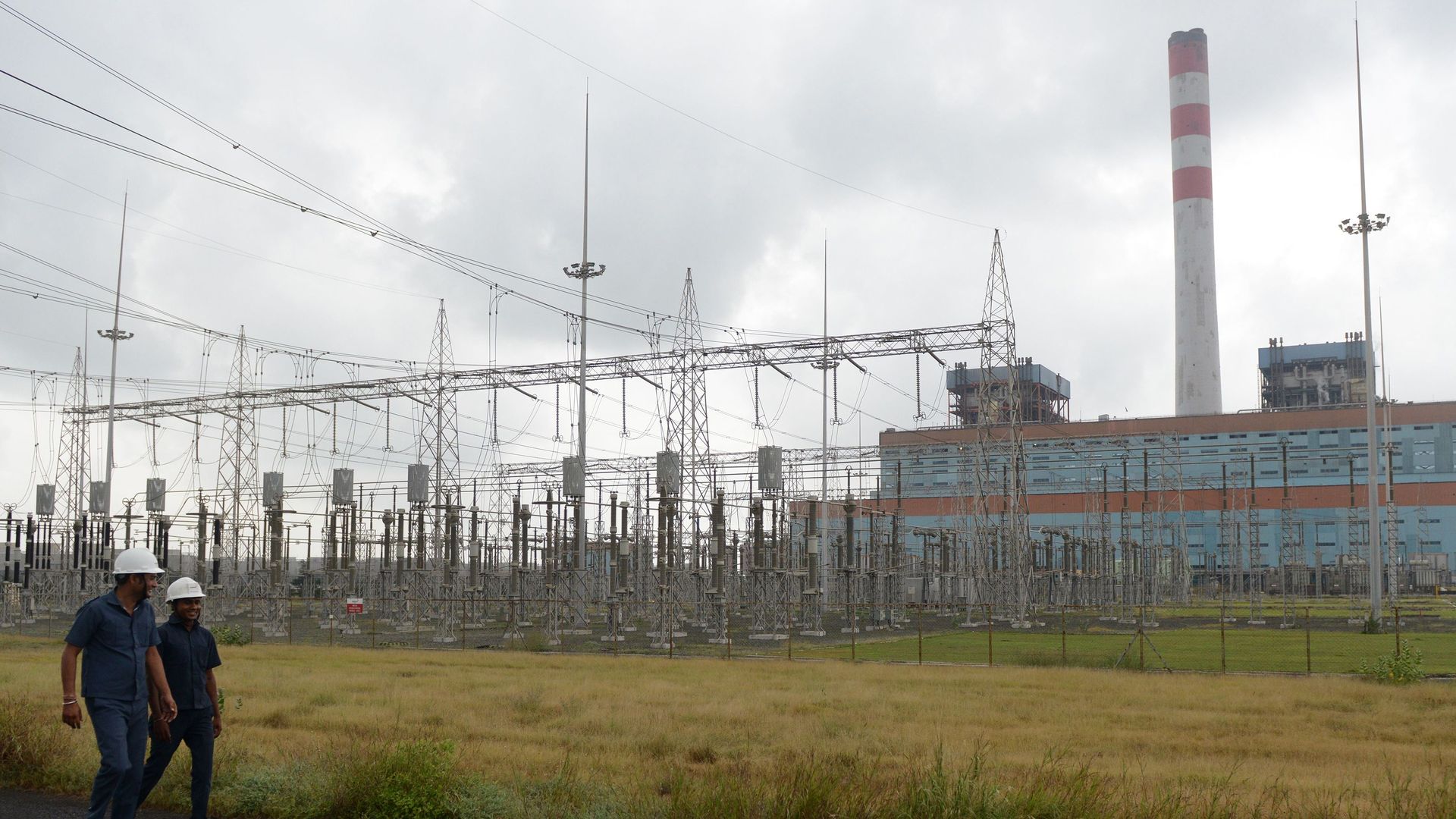Despite decline in new coal plants, emissions targets still at risk
Add Axios as your preferred source to
see more of our stories on Google.

A coal-fired power plant in Salaya, India. Photo: Sam Panthaky/AFP/Getty Images
If most of the world's proposed new coal facilities are ultimately built, their output would far exceed the level required to limit global warming to 1.5 degrees Celsius.
Driving the news: A Global Energy Monitor report found that 538 GW of coal plants are still under consideration around the world. This represents a 62% reduction in proposed coal plants over the past 3 years — from a proposed 1,427 GW in 2015 — but still amounts to much more than the global carbon budget can absorb.
Background: According to the UN Intergovernmental Panel on Climate Change's 1.5 degree report, keeping warming below that threshold requires coal generation to decline 70% by 2030 and be phased out by 2050.
- Separate analyses have suggested that OECD nations need to cut out coal by 2030.
- UN Secretary-General Antonio Guterres has called for a moratorium on all new coal plants by 2020.
Between the lines: The GEM report does have some encouraging news.
- Since 2010, only about one third of proposed plants have been built.
- In the first half of 2019, 10 GW of coal plants have come offline, including 6 GW in the U.S. That puts the U.S. on track for its 4th-highest year of coal retirements, though it would mean a drop from the 18 GW retired in 2018.
- Although this is a global problem, only a handful of countries are needed for a solution: 90% of new plant construction is concentrated in just 15 countries, with 52% in India and China alone.
Yes, but: Despite hitting peak coal consumption in 2013, China's subsequent transition from coal has been uneven. More importantly, China, South Korea and Japan account for the majority of public finance for new coal plants in developing countries.
What to watch: If those 3 countries joined the 113 finance institutions with coal exclusion policies, most plants outside India and China would go unfinanced and thus unbuilt.
- Forestalling that construction could give the world a chance to stay within its carbon budget, assuming coal retirements in OECD countries also stay on track.
Justin Guay directs global climate strategy at the Sunrise Project and advises the ClimateWorks Foundation.
